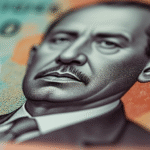Background and Relevance of the Story
The Spanish film industry is on high alert following President Donald Trump’s announcement of a 100% tariff on foreign-produced movies entering the United States. This development has sparked concern among Spanish film producers, prompting them to urge caution and await further clarification on the matter.
Key Players and Their Roles
Fernando Victoria de Lecea: As the president of the Spanish Association of International Audiovisual Producers (PROFILM) and CEO of Meñakoz Films, Victoria de Lecea represents the Spanish film industry’s interests. He has expressed his preference for a measured response to Trump’s proposed tariffs, emphasizing the need for clarity and understanding of their potential impact.
Ernest Urtasun: The Spanish Minister of Culture has pledged to meet with the audiovisual sector on May 7th to analyze and address the consequences of these tariffs.
Trump’s Announcement and Concerns
On Sunday, Trump declared his intention to impose a 100% tariff on all foreign-produced films entering the United States. He authorized the Department of Commerce and the Office of the U.S. Trade Representative to initiate this process “immediately” for any film produced outside the U.S.
Trump cited the decline of the American film industry, citing incentives offered by other countries to lure filmmakers and studios away from the U.S., as well as the devastation of Hollywood and other American filmmaking hubs.
Uncertainty Surrounding Tariff Application
Victoria de Lecea has highlighted the ambiguity surrounding Trump’s tariff proposal. He questions whether it applies to films shot outside the U.S., regardless of production origin, or only to those with foreign production teams.
“Juego de Tronos” (Game of Thrones) and “El Señor de los Anillos” (The Lord of the Rings) are examples of productions not filmed in the U.S. but backed by American studios, raising questions about their potential classification under Trump’s tariff proposal.
Spanish Film Industry’s Response
In light of the uncertainty, Spanish film producers are calling for a cautious approach. Victoria de Lecea emphasizes the need for a “more measured and reflective analysis” to understand which aspects of the film industry would be affected by these tariffs.
He acknowledges that a meeting with producers, distributors, sales agents, and platforms alongside the Minister of Culture will help determine an appropriate stance. However, he warns that if these tariffs affect all non-U.S.-produced programming, Trump would be “shooting himself in the foot,” as much international production occurs outside the U.S.
Key Questions and Answers
- What is the main concern of Spanish film producers? They are worried about the potential 100% tariff on foreign-produced movies entering the U.S., as announced by President Trump.
- Who are the key figures involved in this situation? Fernando Victoria de Lecea, president of PROFILM and CEO of Meñakoz Films, represents the Spanish film industry. Ernest Urtasun, Spain’s Minister of Culture, plans to meet with the audiovisual sector to discuss the tariff’s impact.
- What is unclear about Trump’s tariff proposal? It remains uncertain whether the tariffs apply to films shot outside the U.S., regardless of production origin, or only to those with foreign production teams.
- How is the Spanish film industry responding? Producers are urging caution and calling for a measured, reflective analysis to understand the tariff’s potential impact on various aspects of the film industry.






